I was making an answer for this question, and when I tested the timing for my solution I came up with a contradiction to what I thought was correct.
The guy who made the question wanted to find a way to know how many different lists were contained within another list. (for more information, you can check the question)
My answer was basically this function:
def how_many_different_lists(lists):
s = set(str(list_) for list_ in lists)
return len(s)
Now, the situation came when I measured the time it takes to run and I compared it against basically the same function, but passing a list instead of a generator as a parameter to set():
def the_other_function(lists):
s = set([str(list_) for list_ in lists])
return len(s)
This is the decorator I use for testing functions:
import time
def timer(func):
def func_decorated(*args):
start_time = time.clock()
result = func(*args)
print(time.clock() - start_time, "seconds")
return result
return func_decorated
And this were the results for the given input:
>>> list1 = [[1,2,3],[1,2,3],[1,2,2],[1,2,2]]
>>> how_many_different_lists(list1)
6.916326725558974e-05 seconds
2
>>> the_other_function(list1)
3.882067261429256e-05 seconds
2
Even for larger lists:
# (52 elements)
>>> list2= [[1,2,3],[1,2,3],[1,2,2],[1,2,2],[1,2,3],[1,2,3],[1,2,2],[1,2,2],[1,2,3],[1,2,3],[1,2,2],[1,2,2],[1,2,3],[1,2,3],[1,2,2],[1,2,2],[1,2,3],[1,2,3],[1,2,2],[1,2,2],[1,2,3],[1,2,3],[1,2,2],[1,2,2],[1,2,3],[1,2,3],[1,2,2],[1,2,2],[1,2,3],[1,2,3],[1,2,2],[1,2,2],[1,2,3],[1,2,3],[1,2,2],[1,2,2],[1,2,3],[1,2,3],[1,2,2],[1,2,2],[1,2,3],[1,2,3],[1,2,2],[1,2,2],[1,2,3],[1,2,3],[1,2,2],[1,2,2],[1,2,3],[1,2,3],[1,2,2],[1,2,2]]
>>> how_many_different_lists(list2)
0.00023560132331112982 seconds
2
>>> the_other_function(list2)
0.00021329059177332965 seconds
2
Now, my question is: Why is the second example faster than the first one? Aren't generators supposed to be faster due to the fact that the produce the elements "on demand"? I used to think that making a list and iterating through it was slower.
PS: I have tested many many times getting basically the same results.
